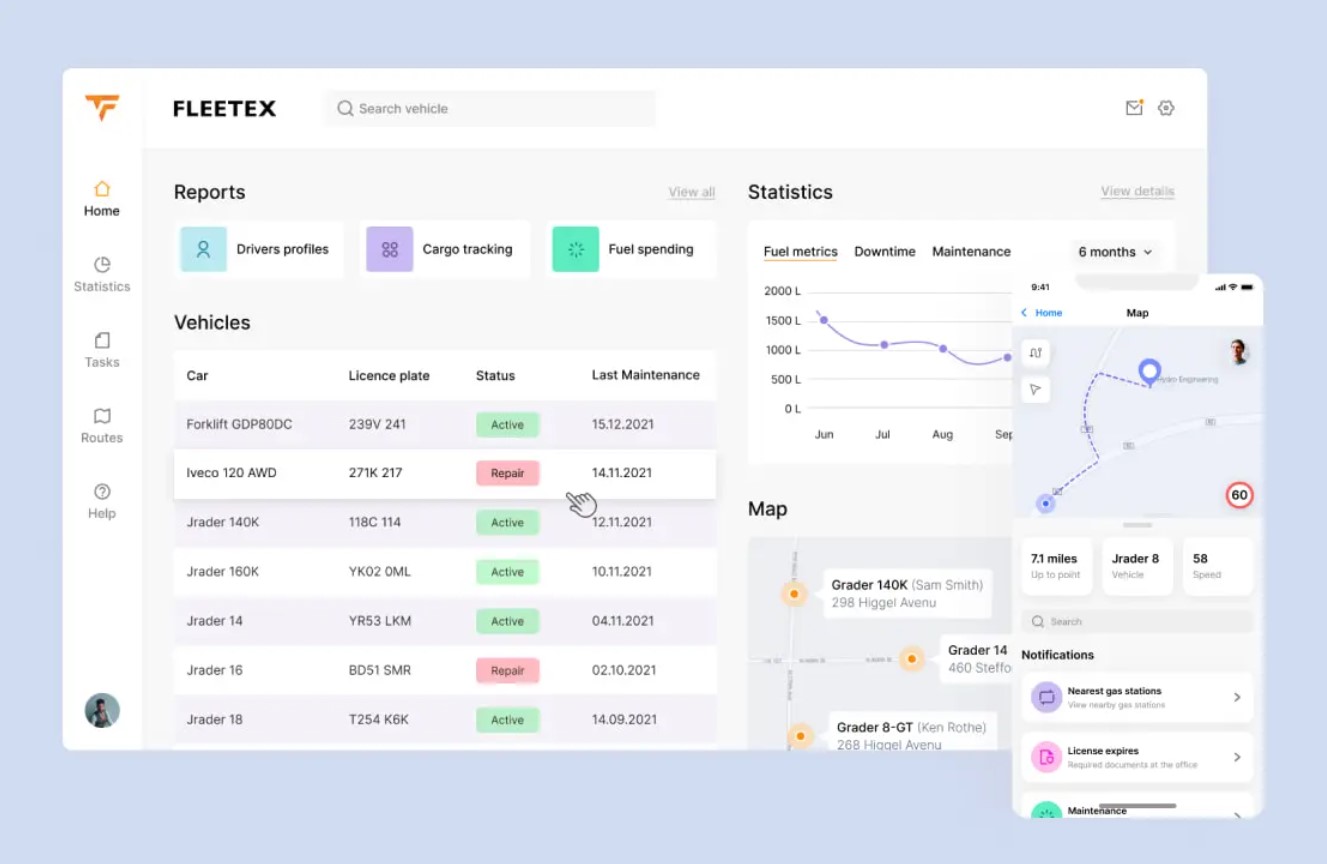
Description
We were approached by a woodworking company. The company was determined to keep up with the latest industry trends and follow the best practices to be as globally competitive as possible. Therefore, they made the decision to build reliable fleet management software (FMS). With it at their disposal, they intended to fully automate their document circulation processes and significantly simplify their overall workflows.
Challenge
When we were contacted by the company, they already had the initial version of the logistics management solution built. That IT platform was developed by their in-house tech team and subsequently refined by a third-party vendor. However, the first version failed to attain the goals set. The customer was still facing numerous challenges generated by the platform's performance and extensibility. As an outcome, endless time-consuming operations and the high costs of implementing features made it clear that the business needs a brand-new app to improve usability and ensure a personalized UX. We were entrusted with becoming the customer's strategic partner and assisting them with the reinvention of their plans and product. Owing to our deep expertise in mobile and SaaS AWS LaaS-based development – as well as in DevOps consulting services – we turned out to be a perfect match to develop an Android mobile app and cloud-based middleware.
Solution
The customer ordered an Internet-based logistics management software. The main task was twofold – on the one hand, the new software was expected to consolidate all core functionalities of the previous app more reliably; on the other hand, it was required to add a new set of features to that resulting single turnkey system capable of orchestrating each product management process. To resolve the task, we assisted the customer with migrating their core business to the cloud via microservice software development. Further, working closely with the customer's team, we designed a detailed roadmap and planned a series of workshops. During them, our tech specialists shared their expertise and knowledge of cloud platform development for logistics, while the customer's in-house IT members specified the functionalities to be migrated to the platform. Within this collaborative and transparent framework, our engineers managed to set up and configure a scalable yet totally reliable cloud infrastructure. The latter offered both a set of instantly available tools to run SaaS solutions and public APIs to manage them. After accomplishing the platform infrastructure stage, we proceeded with migrating the customer's legacy monolithic apps and brand-new microservice-based apps to the cloud platform and refactoring them.
